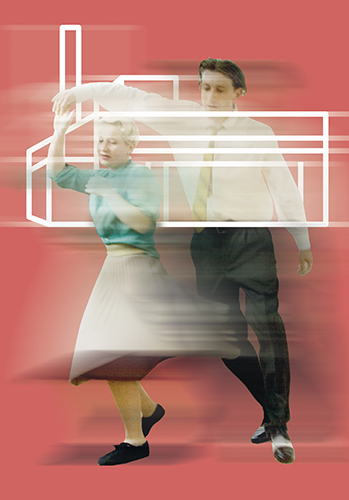
Democracy in trouble? Who cares.
Tool talk III
Participation – Is democratic participation without the right to vote still possible?
Date: Monday, May 22/ 2023, 7-9 p.m.
Where: SOHO STUDIOS, Sandleitenhof, Liebknechtgasse 32, 1160 Vienna
Artistic input: Adia Trischler
Impulse: Christoph Reinprecht, University of Vienna
Moderator: stadt:wurzel
30.1 percent of voting age residents in Vienna were excluded from the 2020 Viennese municipal council elections due to their citizenship as foreigners – more than ever before in the federal capital. According to statistics, more than half of them have been living in Vienna for ten years or longer. What are the long-term consequences and what alternatives are there for democratic participation?
Christoph Reinprecht teaches and researches at the University of Vienna in the sociology department on topics concerning urban life, housing, neighborhood, transformations in urban space, migration and social inequality.
Adia Trischler grew up in New York and currently lives in Vienna. She works as a creative director, curator, cultural and fashion historian, journalist, moderator, lecturer, video director, performer, visual consultant, occasional sound artist and writer. Her work as a video director has been shown at the Center Pompidou in Paris and the Winter Palace in St. Petersburg. She is the recipient of Stylist of the Year at the Vienna Awards for fashion and Lifestyle and co-curator of Series:Black.
——-
5 Tool Talks / April – June 2023
Democracy in trouble? Who cares.
A series of debates on the survival of democracy
Collaborating partner: stadt:wurzel
Co-determination, exchange of ideas and participation must be actively imbedded in the core of democracy.
Democracy is a way of life and a system, in which free elections are the highest form of expression. A democracy is only as strong as the commitment of its citizens, regardless of gender, social status and age. It is therefore crucial for democracy and its survival that citizens participate in the shaping of democratic processes and decision making – today and in the future.
Ideally, everyone should care about the well-being of the community and share responsibility for what is decided. But in view of the many global challenges such as environmental degradation, armed conflicts and social inequality, where are democratically organized societies heading today? And how can future generations shape a democratically organized society in which it is desirable to be an active part of it?
The series of “Tool Talks” combine short topic-oriented expert impulses with everyday experience and knowledge exchange from the audience.
All topics of the “Tool Talks” are conducted under the aspect of gender justice.
The evenings are framed by artistic interventions.
